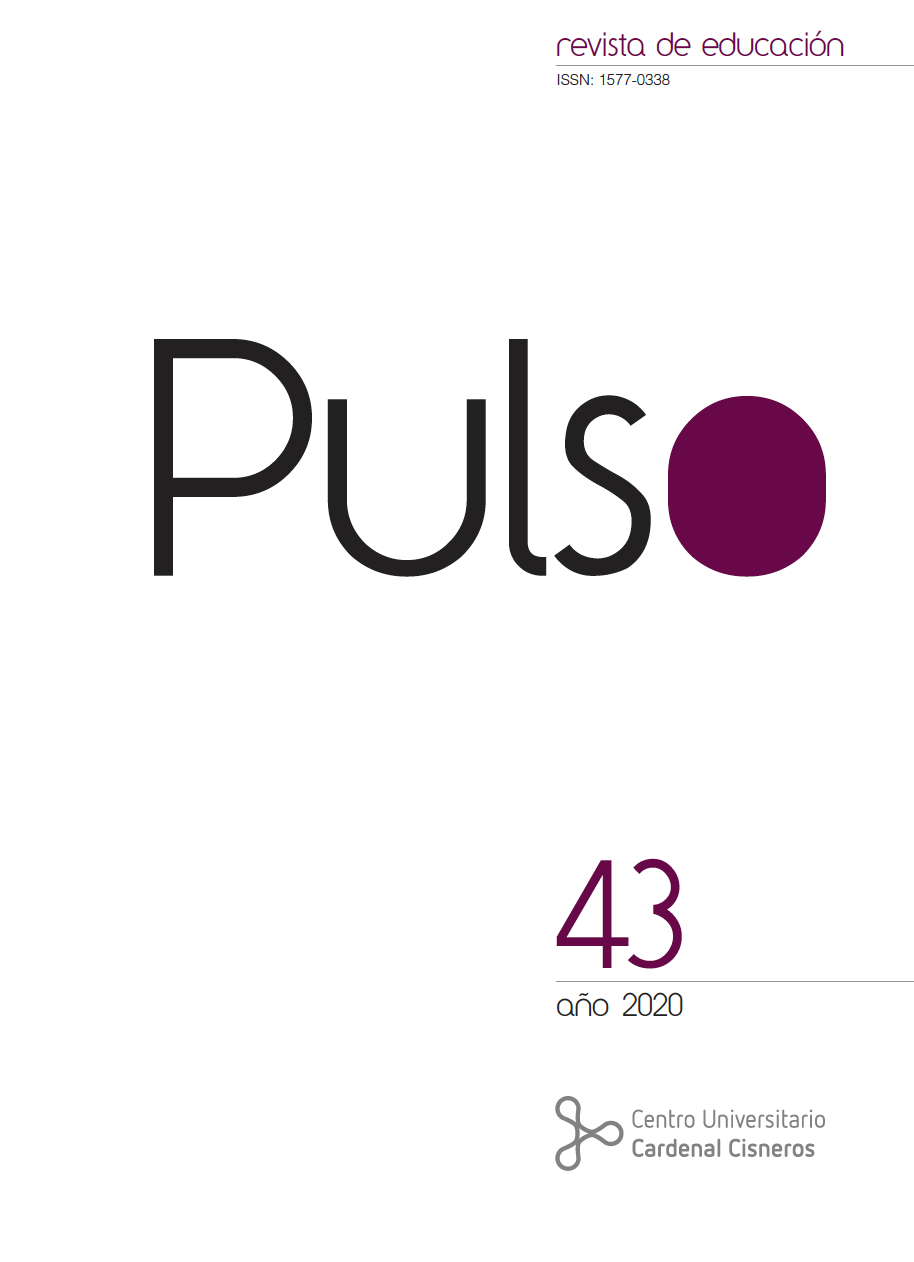Personal stories as a teaching resource to investigate recent history through a transnational project
DOI:
https://doi.org/10.58265/pulso.4808Keywords:
Erasmus Plus, School associations, Social Sciences, Oral history, InternationalizationAbstract
The objective of this project was to develop methodological strategies to work in the area of social sciences in an active way with secondary school students from different countries. During the 2014-2016 biennium six schools from Spain, Germany, Turkey, Poland, Romania and Portugal carried out an educational innovation project within the framework of the Erasmus program, funded by the European Union. The method rested on the combination of two different fields, social sciences and life stories as a strategy to promote active and participatory teamwork among the students, using questionnaires, information searches and interviews with their relatives. Among the results, we highlight the documentary video with interviews. As for the impact on participants their personal progress stands out, as well as the development of their interpersonal and intrapersonal skills, their ability to communicate, especially in English, and the opportunity to collaborate with students and teachers from other countries in a joint educational project.
Downloads
References
Allport, G. (1954). The Nature of Prejudice. United States of America: Addison-Wesley. Fourth printing, 1966. Recuperado de https://archive.org/details/TheNatureOfPrejudice/page/n5/mode/2up
Biava, M. L. y Segura, A. L. (2010). ¿Por qué es importante saber el idioma inglés? Recuperado de http://www.cepjuanxxiii.edu.ar/wp-content/uploads/2010/07/Por-que-es-importante-saber-inglés.pdf.
Cabré, A. y Domingo, A. (2002). Flujos migratorios hacia Europa: actualidad y perspectivas. Arbor 678, 325-344. doi:10.3989/arbor.2002.i678.1084
CIEB (2017). El bilingüismo a debate. Actas del IV Congreso Internacional de Enseñanza Bilingüe en Centros Educativos. Asociación de Enseñanza Bilingüe. Madrid. Recuperado de https://www.ebspain.es/pdfs/actas_cieb2017/COM_22.pdf
Erasmus Plus (2016). Recent European History through Personal Histories. Documentary. Disponible en: https://www.youtube.com/watch?v=GcVy2HsRS5U
Gil Flores, J. (1993). La metodología de investigación mediante grupos de discusión. Enseñanza, 10-11, 199-214.
Goetz, J.P. y Lecompte, M.D. (1988). Etnografía y diseño cualitativo en investigación educativa. Madrid: Morata.
Gómez-Luna, E., Navas, D., Aponte-Mayor, G. y Betancourt-Buitrago, L. (2014). Metodología para la revisión bibliográfica y la gestión de información de temas científicos, a través de su estructuración y sistematización. DYNA, 81(184), 158-163. doi: 10.15446/dyna.v81n184.37066
López, N. y Sandoval, I. (s.f.). Métodos y técnicas de investigación cuantitativa y cualitativa. Recuperado de http://recursos.udgvirtual.udg.mx/biblioteca/bitstream/20050101/1103/1/Metodos_y_tecnicas_de_investigacion_cuantitativa_y_cualitativa.pdf
Martín García, A. V (1995). Fundamentación teórica y uso de las historias y relatos de vida como técnicas de investigación en pedagogía social. Aula, 7, 41-60. Recuperado de https://revistas.usal.es/index.php/0214-3402/article/viewFile/3375/3396%C3%A7
Plummer, K. (1989). Los Documentos personales. Introducción a los problemas y la bibliografía del método humanista. Madrid: Ed. Siglo XXI.
Puig Rovira, J. M. (1992). Notas para un estudio sobre los usos de la escritura autobiográfica en educación. Comunicación presentada al XI Seminario Interuniversitario de Teoría de la Educación, Salamanca. Documento mecanografiado. Recent European History through Personal Histories. (2014). Página de resultados de la Unión Europea. Recuperado de https://ec.europa.eu/programmes/erasmus-plus/projects/eplus-project-details/#project/2014-1-ES01-KA201-004329
Sampieri, R., Fernández, C., y Baptista, P. (2014). Metodología de la investigación. México: McGraw-Hill.
Senent, J. M. (2015). Movilidad de estudiantes: microanálisis del programa Erasmus (2009-2014). Estudio de caso. Bordón, 67 (1), 117-134. doi:10.13042/Bordon.2015.67108
UNESCO (2010). Invertir en la diversidad cultural y el diálogo intercultural: informe mundial de la UNESCO. Recuperado de https://unesdoc.unesco.org/ark:/48223/pf0000187828
Downloads
Published
How to Cite
Issue
Section
License
Copyright (c) 2022 Pulso. Revista de educación

This work is licensed under a Creative Commons Attribution-NonCommercial-NoDerivatives 3.0 Unported License.
This journal offers immediate open access to its content based on the idea that offering readers free access to research favours a global exchange of knowledge.
Papers are published in the electronic version of the journal under a Creative Commons License: Attribution-NonCommercial-No derivatives 4.0 International
Authors are allowed and encouraged to promote the post-print version (reviewed and accepted for publication version) of their work online before publishing them. This favours their earlier circulation and dissemination and thus a possible increase in their citation and reach among the academic community.














